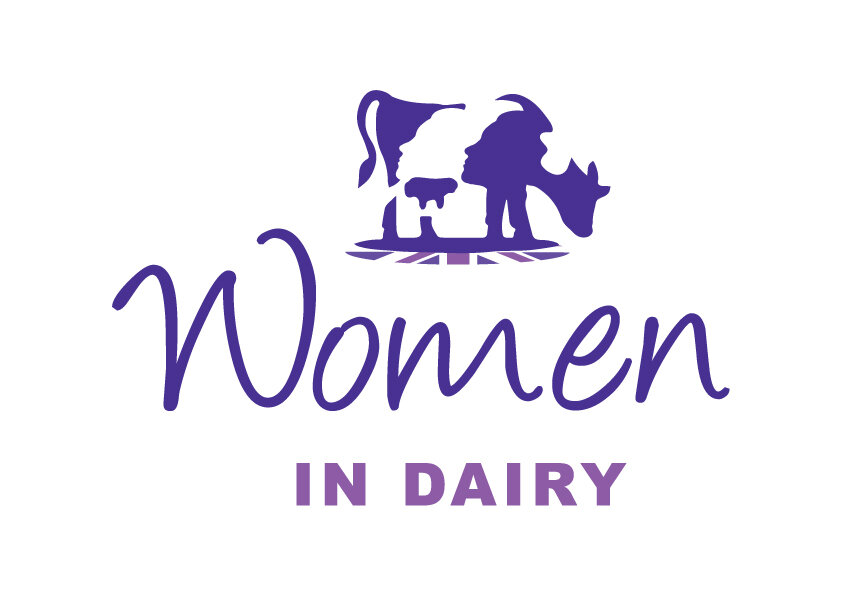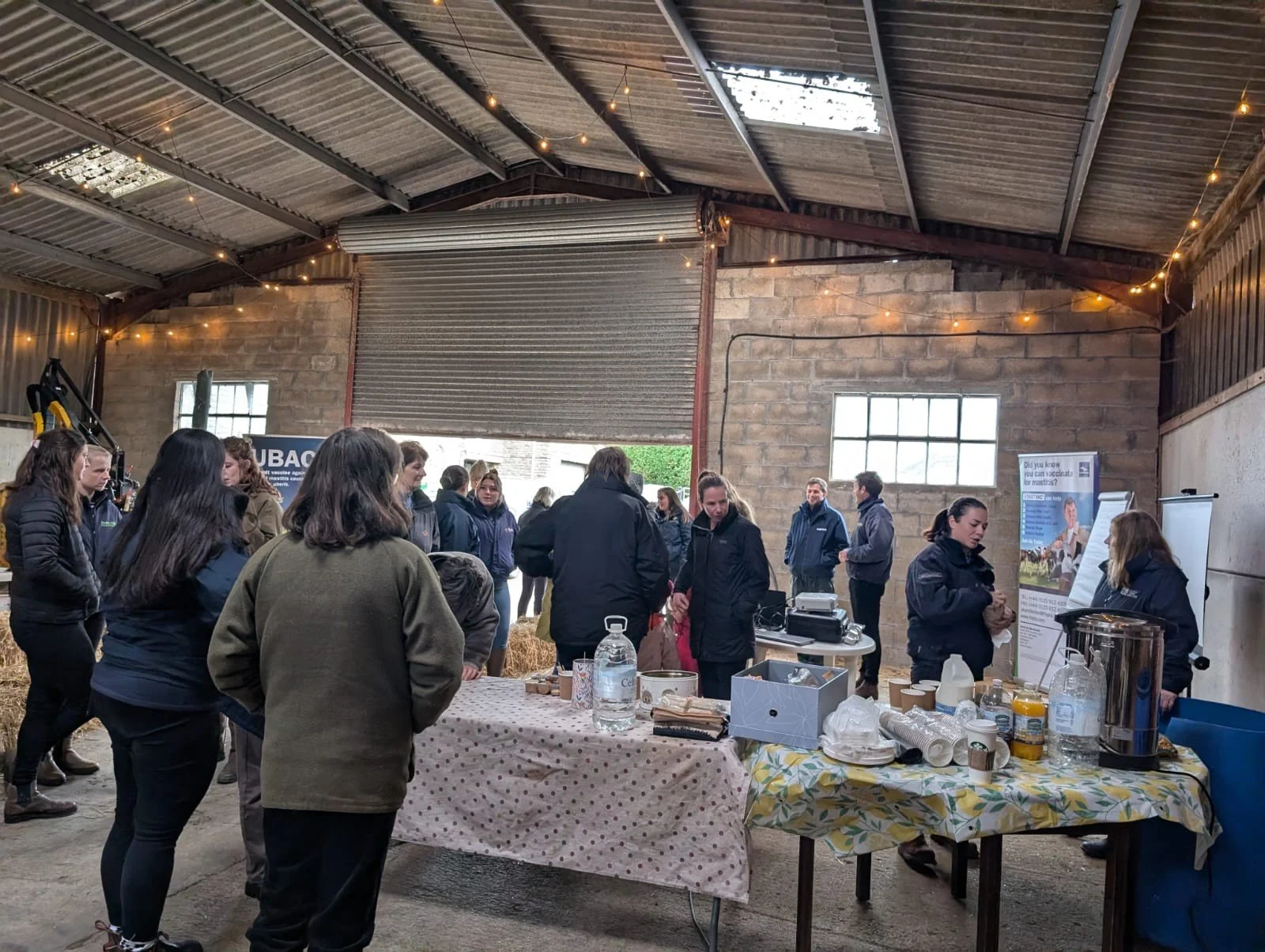The 10th anniversary Women in Dairy Conference took place last week (Thursday 19th September) at Stoneleigh Abbey and welcomed women from across the industry to celebrate their successes and gain inspiration through a stellar line up of leading speakers.
The day was chaired by former Dairy Industry Woman of the Year winner and RABDF trustee Karen Halton. To see so many women in one room with a passion for the sector and their roles within it was really special said Mrs Halton. “The speaker line up to celebrate 10 years of Women in Dairy was spot on and the day was full of energy and positivity.”
Conference sponsor HSBC opened the day with a discussion session alongside Rachel Knowles from Trink Dairy, looking at Rachel’s initial inspiration, and how being kept grounded and taking things one step at a time had enabled her business to grow.
Interestingly, HSBC’s Interim Head of Agricultural Banking, Grace O’Dwyer, explained how, generally, people aren’t exiting the dairy industry because their financials don’t add up, but rather because of other, more complex, reasons.
An interactive session was hosted by Anne-Marie Welby – a specialist coach and facilitator with the goal of helping leaders, teams and individuals achieve their goals without negative stress. By utilising strategies of success mindset, emotional intelligence and resilience she is able to help others obtain their goals by putting vision, focus and intention at the centre.
“Change is constant and we must remember the change we want doesn’t happen by chance”, began Anne-Marie. “Everything that happens in the universe starts with an intention with everything being created twice – once in the mind and once in reality”.
Sarah Tomlinson, Lead Veterinary Science Expert at AHDB, incoming RABDF CEO Hayley Campbell-Gibbons, Herd Manager Charlotte West, and Dairy Farmer, Karen Halton sat on an interactive panel to discuss their inspiration in the industry and how they’ve broken barriers to get to where they are. Being female automatically seems to mean you have to prove yourself within the sector, but advice from the panellists was to make your own career path and use being female as a strength. “Realigning ourselves so we are not a position of threat, and rather a contact for advice, is a good way to mould your way in the sector”, said Mrs Campbell-Gibbons.
Self-proclaimed ginger, punk-inspired Maverick, Carol Glover is a world-renowned leader, keynote speaker, accredited senior exec and positive psychology leadership coach who cocreates with female leaders, entrepreneurs and organisation across the world.
By daring to think differently we open up a whole host of new opportunities that before would have been unimaginable. Whilst managers have always, dating back to pre-time, picked brains regardless of gender or race, evidence shows that women leave it too late to rate their effectiveness as a leader. Research however, tells a different story, with women being rated better than men on key leadership capabilities, explained Carol.
“According to a Havard Business Review report analysing 60,000 360-degree reviews, women outscored men on 17 of the 19 capabilities that differentiate excellent leaders from those average or poor ones in the 2020s.
“Further research also looked at the reasons motivating women for taking jobs – the top reason women would take a job is for a greater work-life balance and personal wellbeing benefits, compared to men whose top motivator was an improved income and benefits package.”
She explained: “With only you being able to create the best version of yourself it is paramount to remember that mindset fuels everything you do. We must also remember character is our foundation and curiosity moves us forward. To be able to move ourselves forward we must adopt a growth mindset which sees us persevere in the face of failures, accept criticism and be willing to learn. If we are unable to do this we automatically limit ourselves to a fixed mindset.”
The session also covered how we look to become better versions of ourselves – highlighting how boosting our “inner intrapreneur” allows us to lead change, overcome obstacles and ultimately deliver results. As part of the modern world we all find ourselves managing the juggle of everyday which means it is harder to connect and communicate at work. However, if we try hard not to fall short doing this and accept avoidance makes situations harder, we are able to build connection that allow us to move forward.
“To succeed you need to stop giving your power away and surround yourself with energy givers. Simple things like speaking up for yourself, maintaining alignment between what you feel and need and what you say and do, making sure you don’t design your behaviour to be liked, setting clear boundaries and being kind and compassionate to yourself are all ways in which we become true to ourselves.”
The conference also saw the announcement of the Dairy Industry Woman of the Year Award, which was presented to Anna Bowen, a new entrant and Nuffield Scholar, who farms in a CFA with her husband. Growing up on a dairy farm Anna is no stranger to the industry, but with her brother in partnership with her father, it was never a career option. After meeting her now husband, she started work on the farm and in time was able to save enough money to invest in his business, of which she now owns a third.
I feel very lucky to have won the award which has previously been presented to women within the industry I hold a huge deal of respect for said Ms Bowen.
She said: “It’s a privilege to work in the dairy industry and I am grateful to have built a rewarding career as both a farmer and consultant. I feel I owe a large amount to progressive people who have offered me opportunities and shared their time and experience with me. Winning the award provides an opportunity to pay that forwards by showing what dairy can offer to women who want to pursue a career in the sector.
“It’s also a chance to say thanks to everyone who has supported me so far, I am hugely grateful to my clients, colleagues, and friends in the industry who have inspired me and set great examples.”
As well as delivering on the CFA Anna works as a consultant at The Andersons Centre, specialising in dairy and nutrient management planning. She is part of NFU Farmers for Schools and Farmertime, taking a live lesson for 20,000 primary school children as part of this work. She also became a Nuffield Scholar in 2020 and is now involved as a Trustee and as part of the Nuffield Cymru committee. Her small but engaged social media following allows her to share a more candid behind the scenes look into dairy farming and an insight into her consultancy work. Using her past and current experiences Anna aims to help other women, despite the obstacles they may face, carve their way into the industry, by being visible in situations that often women aren’t.
If you would like to become a Women in Dairy member and join hundreds of other likeminded women within the industry please visit www.womenindairy.co.uk for more information.




